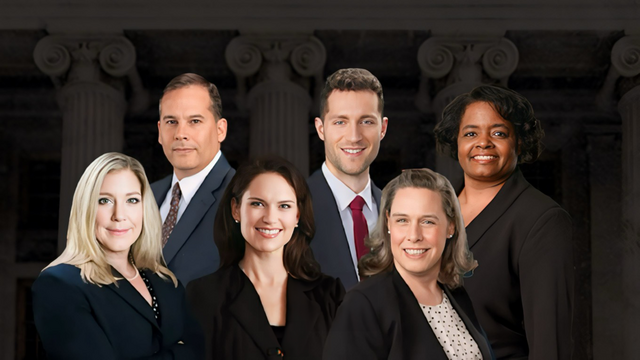Virginia Protective Orders
A Virginia protective order is a document that is signed by a judge or a magistrate that prevents one person from having contact with a second person or perhaps a group of people such as a family.
Protective orders are documented and signed by either a judge or a magistrate depending on the nature of the protective order and they must be served by law enforcement. Typically, the sheriff deputy will come and serve a person at which point it is in full effect. If you have been served with a protective order stemming from a domestic violence situation, it is important you seek the counsel of a Virginia domestic violence attorney to build a defense and ensure no violations of the order occur.
Length of an Order
If it’s an emergency protective order, it will last for exactly 72 hours and there is nothing that can be done under Virginia law to extend or shorten that period of time. A preliminary protective order can last for up to two weeks, but sometimes, if a person is also charged with a criminal act associated with the preliminary protective order, that person’s attorney might seek to extend the preliminary protective order through the completion of the criminal charges.
The reason why this is done is because in a civil protective order a person can be compelled to testify but if a person is a criminal defendant, then we don’t want him or her to be testifying at any proceeding whether it be civil or criminal until the day in criminal court. Under the statute, the protective order can last up to two weeks, but if the respondent or the target of that protective order seeks to continue the hearing to determine whether the preliminary protective order was a valid one to issue then the court will always do that.
The consequence, if a person extends the preliminary protective order beyond that two-week timeframe, then the terms and conditions therein will continue to apply to him or her. Eventually, if there is a hearing on the preliminary protective order the court upon finding the good cause exists to extend it, will extend it for a period of up to two years.
Protective Order Requirements
The most important thing is that a person must abstain from contacting the person who is the petitioner for the protective order by whatever means are specified within the protective order so he or she can’t have any contact with that person. Under certain domestic situations where there might be children involved or there might be shared residences and a protective order can also encompass those obligations that might include a share of rent and mortgage, and the protective order might address custody issues at that time. There are a lot of different variables that might come into play depending on how the two parties involved in a protective order are situated.
Modifications
The only way that it can be vacated or modified is that the complaining witness goes to the court and seeks to have those terms and conditions changed. Additionally, it can be changed or extended by the complaining witness going to the court and seeking to have that done.
Violations
The provision outlines of a protective order are an absolute order from a court telling a person not to do a certain thing. If a person violates the specifics of the protective order in any way, even a minor way, they could face a separate and distinct criminal charge. It can be something as simple as a text message or a phone call in the result of a criminal charge. A person would be convicted of that crime as well, and with two criminal convictions, the consequences simply increase from there and one would expect active jail time to be associated with such convictions.
What Happens After a Violation
The very simple answer is that the police are contacted and the victim explains that they have a protective order in place and if it happens, they can go and arrest the person who violated it. When the judge finds that the person violated the order, they will be convicted assuming the evidence is there beyond a reasonable doubt, they will be convicted of a separate and distinct criminal charge under Virginia law for violating a protective order. The consequences of that conviction are generally very harsh, usually violating a protective order resulted in an active jail sentence.
Civil Proceedings
Whatever happens in a civil proceeding, it doesn’t get in the way of what happens in a criminal proceeding. The only exception is if a person were to allow the civil protective order hearing to take place before his or her criminal case is due in court and that testimony is observed or recorded by a prosecutor. That person’s testimony can certainly be used against them in the criminal trial. The reason is always a good idea to delay the hearing or the protective order until after the completion of the criminal charges.
Impact on Criminal Trials
A civil protection does not affect a case if charged with domestic violence, even the subject matter of the two hearings is the same. One exception is if the person who is the target of the protective order or the respondent for the protective order who chooses to testify on his or her own behalf then that testimony can be used against them.




